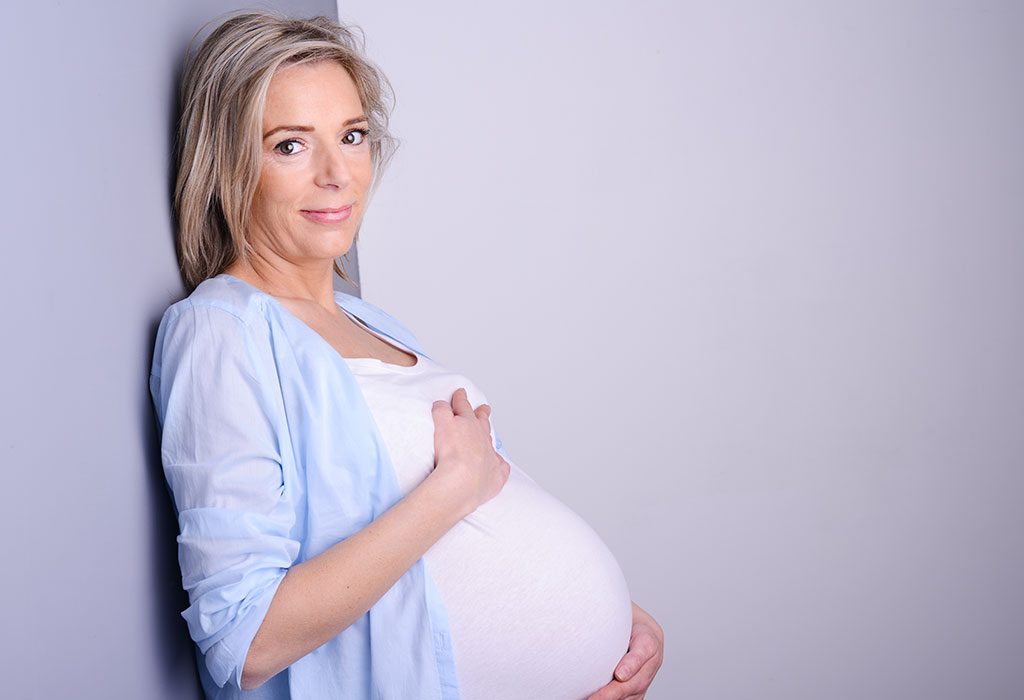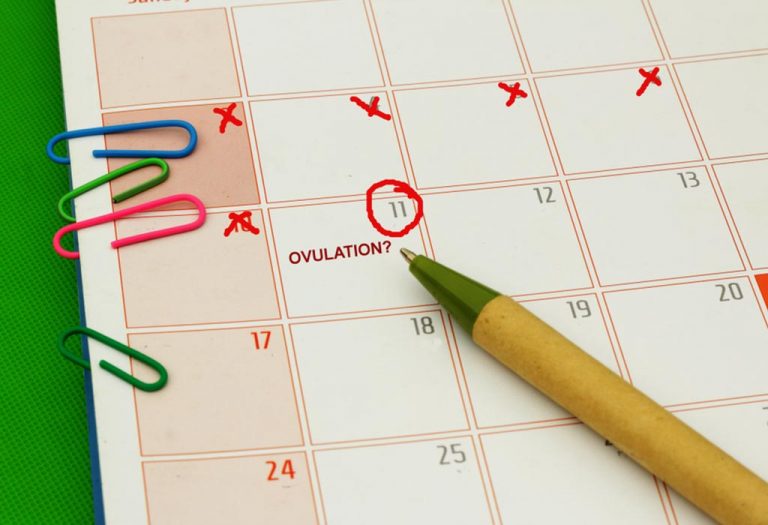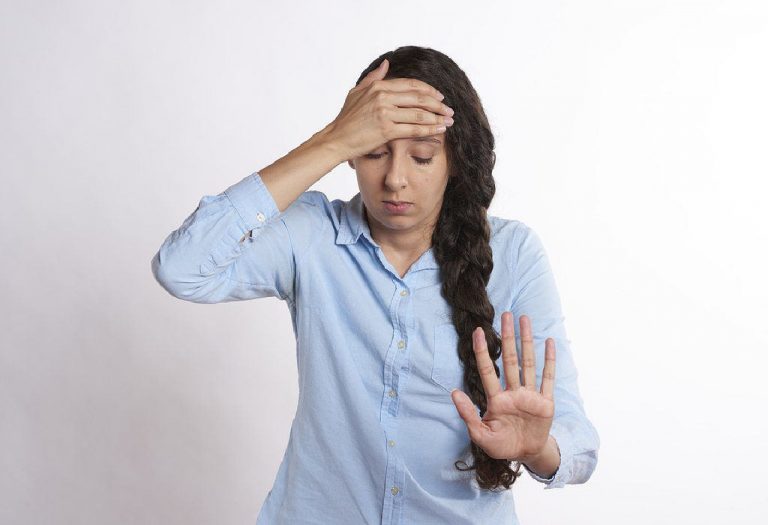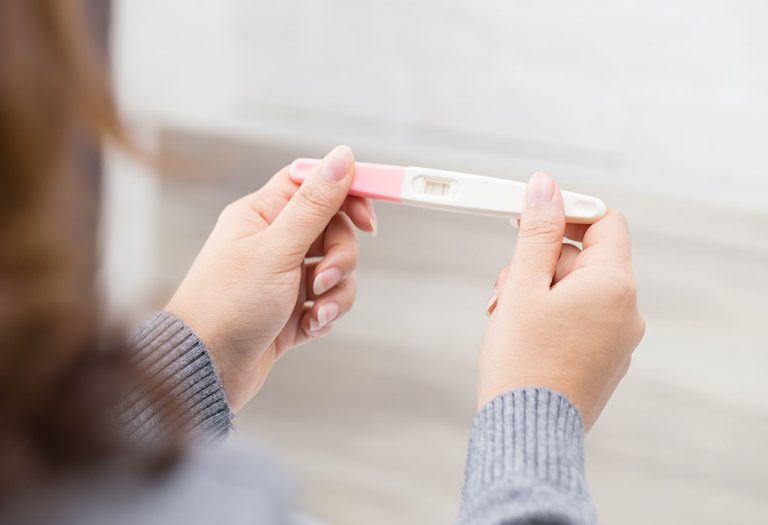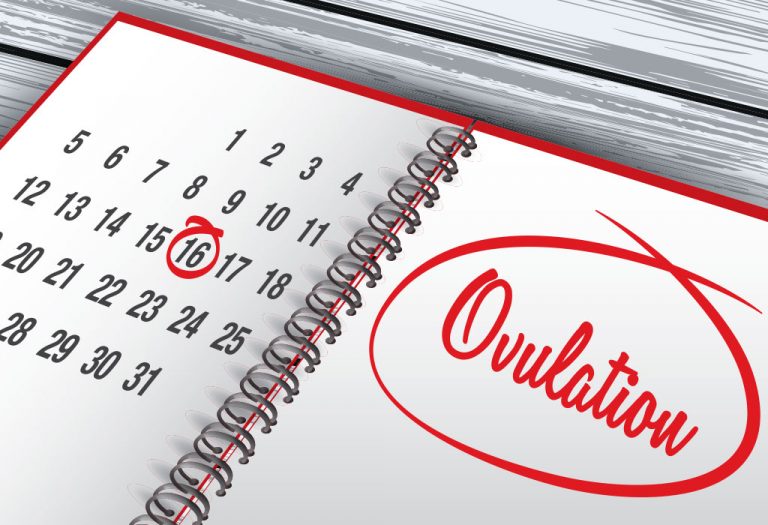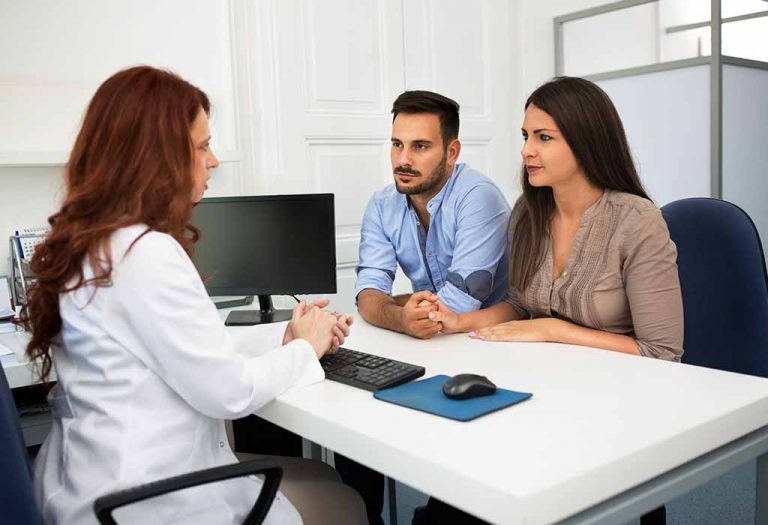Getting Pregnant at 50’s – Chances, Benefits and Complications

The odds of getting pregnant decrease as a woman ages – we all know this. But the continuous advancements in medical technology show otherwise. Infertility treatments have enabled women to get pregnant at an age they would have thought impossible. Women with medical issues or fertility problems may find it difficult to conceive, but now they have some options that may make it possible for them to have their own children. Today, many women in their mid-30s and mid-40s try to conceive and have babies, but what about women in their 50s?
It can be almost impossible for a woman to get pregnant at 50 naturally. Even after using assisted reproductive techniques, it can be incredibly hard for a woman of this age to conceive a child. Read on to learn more about the odds of getting pregnant at 50.
Can a Woman Get Pregnant Naturally in Her 50s?
The fertility levels of a woman who is above 50 years of age are low. Even the eggs left at this point, if any at all, won’t be able to support a new life. Hence, it can be very difficult for a woman to get pregnant at 50 naturally and have a healthy baby. The chances of a healthy natural conception after the age of 50 years are only 1%. Even if a woman does get pregnant in her fifties, there is a high chance that the baby will be born with birth defects, or the pregnancy might end up in a miscarriage. A woman can conceive in her 50s but may not conceive naturally. A woman in her 50s can get pregnant only after undergoing extensive fertility treatments and with the help of donor eggs. However, per recent guidelines, a woman may not be given the option of IVF in her fifties.
Symptoms of Pregnancy at Age 50
Can a 50-year-old woman get pregnant? The idea of pregnancy at age 50 may seem unconventional. However, today, women are increasingly defying age-related barriers and embracing motherhood at later stages of life. While it is undoubtedly a challenging journey, it is not impossible. If you find yourself in this unique situation, staying informed about pregnancy symptoms at this stage of life is crucial. Read on to discover some of the common signs and symptoms that could indicate a pregnancy at 50:
- Missed Period: This is usually the first sign of pregnancy. If you have missed a period or your periods have become irregular, it could be a sign that you are pregnant.
- Fatigue: Feeling tired always, even after getting a good night’s sleep, is a common pregnancy symptom.
- Nausea and Vomiting: Morning sickness, nausea and vomiting can occur at any time of the day or night and last for weeks.
- Breast Changes: Hormonal changes during pregnancy can cause your breasts to become sore, tender, and swollen.
- Frequent Urination: Pregnancy increases the blood flow to your kidneys, causing you to urinate more often than usual.
- Mood Swings: Fluctuating hormones during pregnancy can cause mood swings, irritability, and depression.
- Cravings and Aversions: Changes in taste and smell can cause food cravings or aversions, which can signify pregnancy.
How to Prepare for a Pregnancy in Your 50’s?
If a woman wants to get pregnant in her 50s, she might have to resort to in vitro fertilization (IVF), where the sperm and egg will be combined in a lab, and then transferred into the uterus as a fertilized embryo. It can be difficult for an older woman to get pregnant, but not impossible. The odds of getting pregnant are only 1%, but a woman can have a child in her 50s. If you are above the age of 50, these tips can help. The tips mentioned below can at least help you get started.
1. Get Yourself Checked
Now, this is a must. If you are a 50-year-old woman or well above that age and are considering getting pregnant, you must visit a gynaecologist and ask her how to do it. Ask her whether your uterus is strong enough to carry a baby if your tubes are clear, and if you have enough eggs to support a new life. Although the chances of you being able to use your own eggs will be slim, you can confirm with your doctor.
2. Eat Healthy Foods
When a woman in her 20s or 30s plans to start a family, she is told to eat healthy foods, exercise, and follow a healthy lifestyle. But the same stands true for a woman in her 50s. If you are in your prime age, you must watch your health if you plan to get pregnant. Conceiving at this age is exceptionally difficult; hence it is even more important for you to make healthy choices. Make sure that you eat healthy foods, get enough exercise, and get lots of rest in between.
3. Quit Smoking
If you plan to get pregnant in your 50s, you must quit smoking and drinking. Smoking, drinking, or using drugs can affect your chances of having a healthy pregnancy and can be detrimental to the mother’s and her baby’s health. If you have any of these habits, it’s time to quit them to increase your chances of conceiving and carrying your baby to term.
4. Find a Good Donor
At 50, you are unlikely to use your own eggs. Women in their fifties usually produce eggs that are mostly not viable. You might have to find a donor. The donor will be chosen based on your physical traits. A person with similar physical characteristics to yours might make a good donor, but she, too, should be healthy.
5. Take Prenatal Tests
The usual prenatal tests include blood tests, blood pressure tests, and urine tests. These tests are conducted to identify whether a woman is healthy enough to conceive and carry a baby to term. Do not skip these tests. You will also have to take certain other tests to rule out the chances of your baby being born with birth defects. So make sure you ask your doctor to schedule the necessary tests.
6. Learn to Recognize the Signs
Women in their fifties most likely reach menopause or are in their perimenopause stage of life. The signs of menopause can sometimes be similar to that of pregnancy, so you must recognise pregnancy symptoms, such as nausea, constipation, swollen breasts, and food sensitivity at 50.
Advantages of Conceiving in Your 50s
Women in their 50s may have difficulty conceiving for biological reasons, but they can conceive. Furthermore, there are some advantages of conceiving later in life. Here are some to consider:
1. Older Women Are More Experienced and Financially Secure
Women in their fifties are more likely to be at a place in life where they have had enough time to earn and save over the years. When it comes to all the expenses that accompany having a baby, it will not be as hard to manage as they will have saved enough. Older women are also more experienced and content with who they are.
2. Women Who Give Birth Later in Life May Live Longer
Women who give birth later in life tend to live longer. Yes, they can live from 80 to 90 years of age. The genes that allow older women to give birth also help slow the ageing rate, making them less prone to illness in old age. However, there is no proof for the same.
3. Emotional Maturity and Stability
Women in their 50s are often more emotionally mature and financially stable than younger women, which can provide a stable and supportive environment for a child. They may have already achieved their personal and professional goals, allowing them to focus on their children’s needs.
4. Strong Support Network
Women in their 50s may have established strong social support networks that can benefit both the mother and the child. They may have long-standing friendships, supportive family members, and a strong sense of community, which can help provide emotional support and practical help during the child-rearing years.
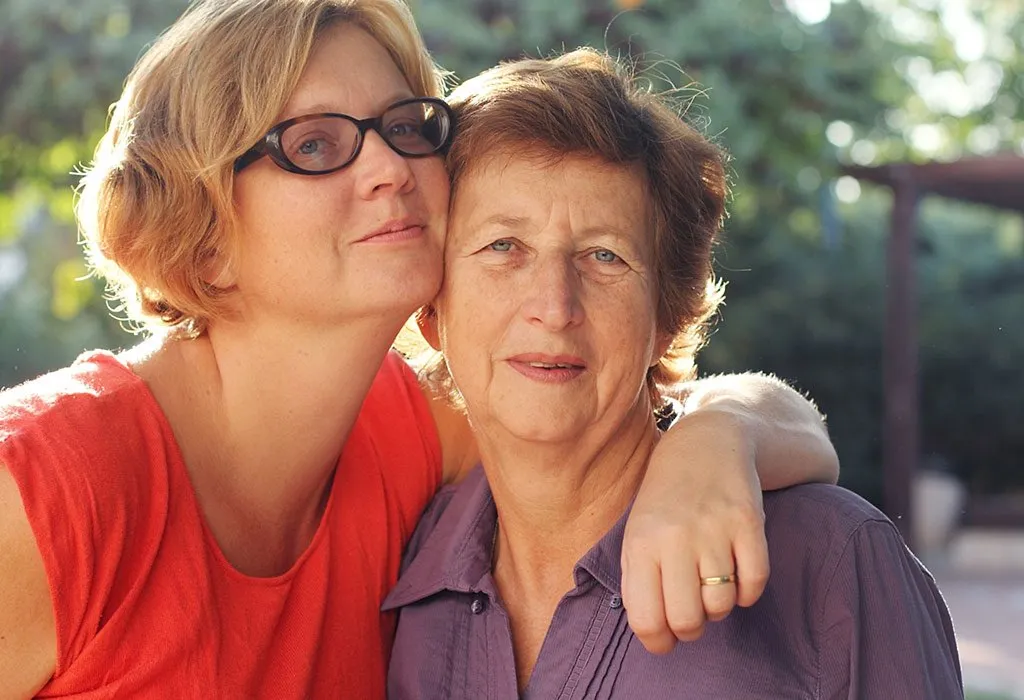
Risks and Complications of Having a Baby in 50s
While the number of women giving birth in the later years of their lives has increased recently, there are concerns that these women and their babies may have certain health problems. These range from heart issues to the chances of developing breast cancer. Here are some risks associated with giving birth over the age of 50.
1. Cancer
Older women who resort to fertility treatments to get pregnant may get breast cancer. There are concerns that administering additional sex hormones may interfere with the natural ageing of the breast cells.
2. Heart Problems
The stress and strain women go through during pregnancy can be compared to running a marathon which is why the older a woman, the more are her chances of developing complications. Women above the age of 40 (and trying to get pregnant) are at risk of developing pregnancy-induced preeclampsia.
3. Placental Problems
The chances of developing placenta previa are higher in older women. This condition is where the placenta lies low in the uterus and blocks the cervix. This may result in premature labour or severe vaginal bleeding.
4. Risks to the Baby
Women who give birth to babies in their 50s are more likely to have premature babies. The babies may even be born with birth defects. These babies are more likely to develop heart problems.
5. Difficulty in Caring for a Child
Raising a child requires significant physical and emotional energy. Older mothers may experience fatigue, joint pain, and other age-related health issues, making it challenging to keep up with the demands of a young child. Additionally, older parents may not have the same level of social support as younger parents, making caring for a child more difficult.
6. Gestational Diabetes
This is a type of diabetes that develops during pregnancy and usually goes away after delivery. However, it can lead to complications for both the mother and baby, including premature delivery, excessive fetal growth, and a higher risk of developing type 2 diabetes later in life. Women who become pregnant in their 50s are at an increased risk of developing gestational diabetes.
7. Pre-eclampsia
This condition occurs when a woman has high blood pressure and protein in her urine after the 20th week of pregnancy. It can lead to serious complications for both the mother and baby, including premature delivery, placental abruption, and seizures. Women who become pregnant in their 50s are at a higher risk of developing pre-eclampsia.
What Are the Reasons for These Complications?
The complications associated with getting pregnant over 50 arise mainly because a woman’s natural reproductive life ends by this point. If a woman is in the perimenopause stage and gets pregnant, it will be a high-risk pregnancy. She may get pregnant, and eggs might still be left, but most likely, they won’t be fertile enough to carry the pregnancy to term.
Normal ovulation at the age of 50 is rare. Women at this age usually go through anovulatory cycles, in which no egg is released, making it very difficult for them to get pregnant with their own eggs. Those trying to get pregnant in their 50s should not confuse the signs of menopause with the signs of pregnancy, as they are very similar.
Tips for Pregnancy in the 50s
Pregnancy in your 50s can be both exciting and daunting. While there are unique risks and challenges associated with becoming pregnant later in life, there are also steps you can take to help ensure a healthy pregnancy. Here are some tips for pregnancy in your 50s:
- Consult a Gynaecologist: It is essential to consult an expert and senior gynaecologist before attempting to conceive in your 50s. Your provider can help you understand the potential risks and complications associated with pregnancy at this age, and may recommend additional testing or monitoring throughout your pregnancy.
- Practice Good Self-Care: Pregnancy can be physically and emotionally demanding at any age, especially for women in their 50s. It is essential to practice good self-care, including eating a healthy diet, staying active, getting enough sleep, and managing stress.
- Consider Genetic Testing: The risk of chromosomal abnormalities, such as Down syndrome, increases with age. Women in their 50s may want to consider genetic testing to help identify any potential risks and make informed decisions about their pregnancy.
- Stay Informed: Pregnancy and childbirth have evolved over time, and staying informed about the latest recommendations and guidelines is essential. Joining a pregnancy support group or reading credible online resources can help you stay up-to-date on the latest information.
- Plan for Postpartum Support: Caring for a newborn is demanding, and it’s essential to have a plan in place for postpartum support. This may include hiring a doula or seeking assistance from family and friends.
FAQs
1. What Are the Chances of a Woman Getting Pregnant at 50?
The chances of getting pregnant naturally at 50 are low due to a decline in fertility. However, it is not impossible, and there have been cases of women conceiving naturally in their 50s. According to some studies, the success rate of a natural pregnancy at 50 is less than 1%.
2. Is It Possible to Get Pregnant at 50 With No Period?
It is possible to get pregnant at 50 with no period, but it is unlikely. Women who have gone through menopause and have not had a period for over a year are generally considered infertile. However, it is still possible for women to become pregnant through assisted reproductive technologies like IVF or ovodonation.
3. In Vitro Fertilisation (IVF) or Ovodonation Is Better for Women at 50?
IVF and ovodonation can be options for women in their 50s who want to conceive. However, the success rates of these methods decrease with age, and risks are associated with both. IVF involves using a woman’s own eggs, while ovodonation involves using donor eggs. The success rate of IVF declines with age, and the success rate of ova donation may be higher, but it comes with ethical, legal, and emotional implications.
If you are in your fifties and are considering trying for a baby, it is best to know everything there is to know before you make a decision. You must prepare yourself both physically and mentally for the journey ahead because it will be difficult at this age. Remember, every pregnancy is different; what works for one woman may not work for another. The most important thing is prioritising your and your baby’s health and working closely with your healthcare provider to ensure a safe and healthy pregnancy.
References/Resources:
1. Kort. DH, Gosselin. J, Choi. JM. et al.; Pregnancy after age 50: defining risks for mother and child; Pubmed; https://pubmed.ncbi.nlm.nih.gov/21809262/; August 2011
2. Halevy. EM, Pariente. G, Sheiner. E, et al.; Perinatal Outcomes of Women Aged 50 Years and Above; PubMed; https://pubmed.ncbi.nlm.nih.gov/31739368/; November 2019
3. Having a Baby After Age 35: How Aging Affects Fertility and Pregnancy; ACOG; https://www.acog.org/womens-health/faqs/having-a-baby-after-age-35-how-aging-affects-fertility-and-pregnancy
4. Age and fertility; Better Health Channel; https://www.betterhealth.vic.gov.au/health/conditionsandtreatments/age-and-fertility
5. IVF (In Vitro Fertilization); Cleveland Clinic; https://my.clevelandclinic.org/health/treatments/22457-ivf
Also Read:
How to Conceive Baby Fast & Easily
Getting Pregnant at 40 – How Safe is it?
Chances of Pregnancy Before, During and After Periods
What is the Best Time of the Day to Get Pregnant?



